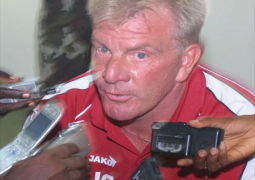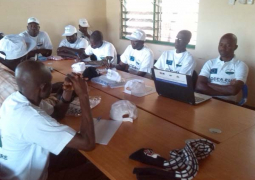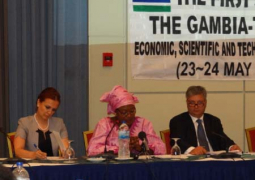WANEP-Gambia has called on the government and “the relevant authorities” to provide serene and safe space for women and children to realise their potentials.
Anna Jones, acting national coordinator of WANEP, said some of the policies, procedures and mechanisms should be strengthened to change the long-standing and deep-seated ways of thinking that make daily acts of violence and discrimination against women ‘acceptable’.
She noted that ending violence and discrimination, in all its ramifications, against women is very critical in enabling women and other marginalised people to realise their full potentials.
Madam Jones made this remark on Thursday during a celebration to mark the 15th year anniversary of the United Nations Security Council Resolution (UNSCR) 1325.
The event, held at Tango, was organised by WANEP-Gambia in collaboration with various civil society organisations and was bankrolled by the Austrian development cooperation and Sweden.
Madam Jones said WANEP recognises national efforts by the Gambia government in demonstrating its commitment to women’s security and development, particularly the National Action Plan on UNSCR 1325.
This action plan defines a systematic framework for national actions and monitoring systems to assess progress and impact of intervention at all levels.
Acting national coordinator of WANEP noted that lasting peace and security will not be achieved without women’s full and equal participation in all processes.
She said concerted leadership for gender equality and gender mainstreaming at all levels of decision-making are required, including in peace building and recovery processes and sectors.
On the UNSCR 1325, Madam Jones said it is a landmark, ground-breaking international legal framework adopted on 31 October 2000.
It addresses not only the unwarranted impact of war on women, but also the pivotal role women should and do play in conflicts management, conflict resolution and sustainable peace.
It was followed by the adoption of other complementary resolutions to address the gaps identified in UNSCR 1325.
The resolution is often described in terms of four pillars: participation of women in peace processes; prevention of conflicts and prosecution of perpetrators of sexual and gender based violence; protection of women and girls in war and peace; and prosecution of perpetrators of sexual and gender based violence.
Nancy Njie, permanent secretary at the Office of the Vice President, said the UNSCR 1325 emphasised the need to incorporate gender sensitivity and include women in approaches on security and peace building especially those affected by the conflict.
She said the resolution also highlights the need to sensitise peacekeepers, the police and judiciary on gender issues in conflict and adopt measures to ensure the protection and adherence to the human rights of women and girls.
It also provided that the special needs of women and girls in conflicts should be attended to and that women should be a part of all decision-making levels as an equal partner for conflict resolution, prevention and sustainable peace.
A study conducted to mark the 10th anniversary of the resolution, found out that UN missions had achieved little success in improving the participation of women in peace negotiation and agreements.




